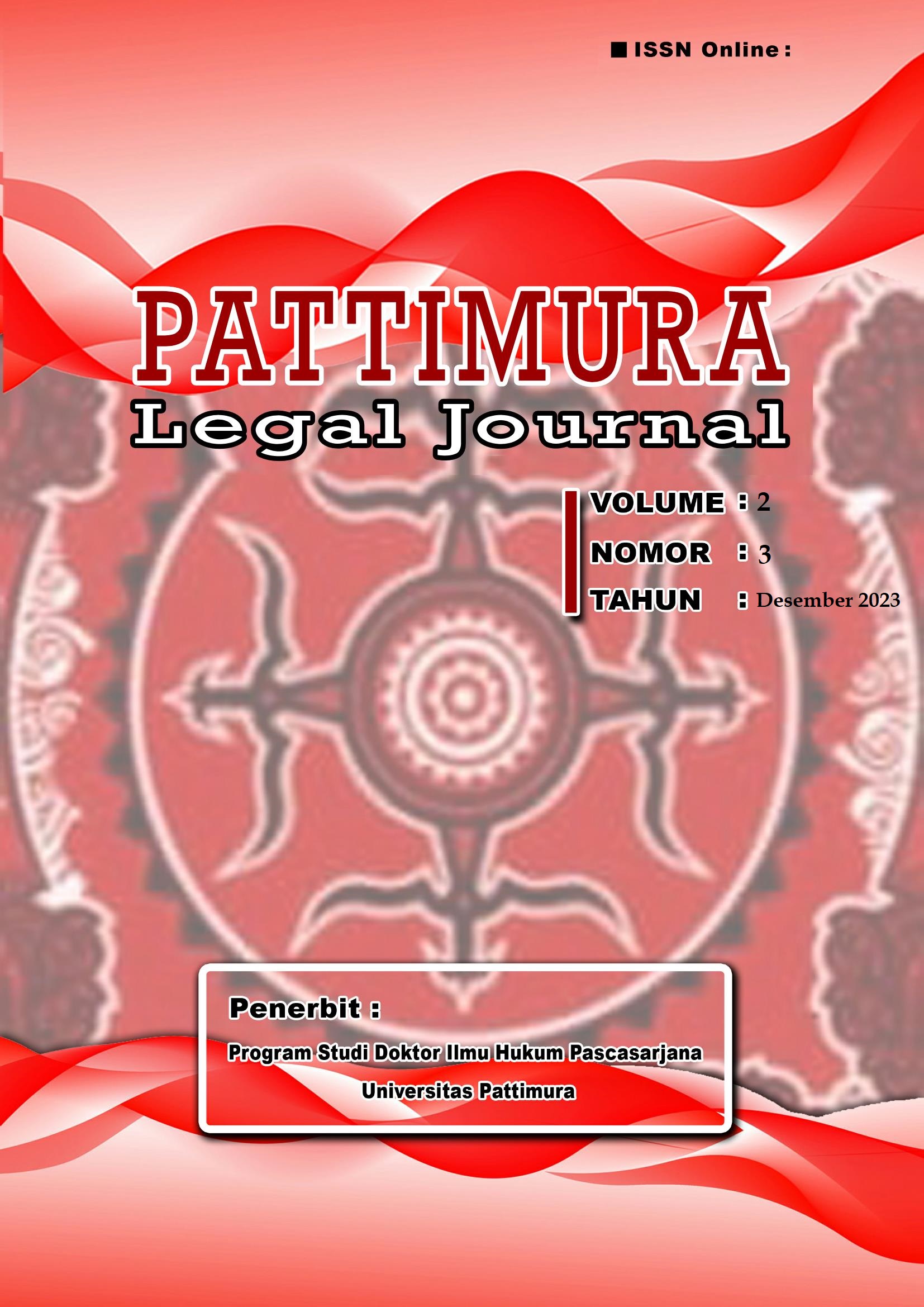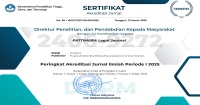Diversi Dalam Penanganan Anak Yang Berkonflik Dengan Hukum Dalam Sistem Peradilan Pidana Anak
Abstract
Introduction: Children in conflict with the law in the juvenile criminal justice system, the form of settlement is with a restorative justice approach through diversion which is an initial step in the settlement process before proceeding to the next legal process.
Purposes of the Research: This study aims to analyze and examine the implementation of diversion in handling children in conflict with the law.
Methods of the Research: The type of research used in this research is empirical. Sources of data include primary data and secondary data. Data collection techniques through interviews and literature study and data analysis using qualitative analysis.
Results of the Research: The results showed that the implementation of diversion in handling criminal acts committed by children was in accordance with what was mandated by the Juvenile Criminal Justice System Act at the stages of investigation, prosecution and trial. If the settlement of a criminal case committed by a child through diversion is successful in peace between the parties, the report will be revoked because there has been a mutual agreement in the peace made. The settlement process with this diversion did not all run smoothly and succeeded in reaching a peace agreement between the parties. If the diversion process does not result in an amicable agreement or the diversion agreement is not implemented, then the juvenile criminal justice process will proceed to the Court. In the settlement of criminal cases committed by children, there are still obstacles faced by law enforcement officers and litigants and there are still factors that hinder the implementation of diversion.
Downloads
References
Jurnal
Angkasa, Saryono Hanadi, and Muhammad Budi Setyadi. “Model Peradilan Restoratif Dalam Sistem Peradilan Anak (Kajian Tentang Praktik Mediasi Pelaku Dan Korban Dalam Proses Peradilan Anak Di Wilayah Hukum Balai Pemasyarakatan Purwokerto).” Jurnal Dinamika Hukum, 9, no. 3 (2009): 224–42. https://doi.org/10.20884/1.jdh.2009.9.3.230.
Satriya, Bambang. “Anak Membutuhkan Penegak Hukum Humanis (Analisis Putusan MK Nomor 1/PUU-VIII/2010).” Jurnal Konstitusi 8, no. 5 (2011): 649–74. https://doi.org/10.31078/jk852.
Wicaksono, Adi Hardiyanto, and Pujiyono. “Kebijakan Pelaksanaan Diversi Sebagai Perlindungan Bagi Anak Yang Berkonflikdengan Hukum Pada Tingkat Penuntutan Di Kejaksaan Negeri Kudus.” Law Reform 11, no. 1 (2015): 12–42. https://doi.org/10.14710/lr.v11i1.15752.
Buku
Djamil, M Nasir. Anak Bukan Untuk Dihukum. Jakarta: Sinar Grafika, 2013.
Joni, Muhammad, and Zulchaina Z Tanamas. Aspek Hukum Perlindungan Anak Dalam Perspektif Konvensi Hak Anak. Bandung: Citra Aditya Bakti, 2017.
M, Fauzan H, and Baharudin Siagian. Kamus Hukum Dan Yurispurdensi. Depok: Kencana Prenada Media Group, 2017.
Maidin, Gultom. Perlindungan Hukum Terhadap Anak Dalam Sistem Peradilan Pidana Anak Di Indonesia. Bandung: Refika Aditama, 2010.
Marlina. Peradilan Pidana Anak Di Indonesia: Pengembangan Konsep Diversi Dan Restorative Justice. Bandung: Refika Aditama, 2009.
Wahyudi, Setya. Implementasi Ide Diversi Dalam Pembaruan Sistem Peradilan Pidana Anak Di Indonesia. Bantul: Genta Publishing, 2011.
Wiyono, R. Sistem Peradilan Pidana Anak Di Indonesia. Jakarta: Sinar Grafika, 2016.
Online/World Wide Web, Disertasi/Tesis/Skripsi, Dan Lain-Lain
http://metro.news.viva.co.id/news/read/312779-2-008-kasus-kriminal-dilakukan-anak anak.
Copyright (c) 2023 Yerusalina Ingratubun, Elsa Rina Maya Toule, Hadibah Zachra Wadjo (Author)

This work is licensed under a Creative Commons Attribution-NonCommercial 4.0 International License.
Authors who publish their manuscripts in this Journal agree to the following conditions:
- The copyright in each article belongs to the author, as well as the right to patent.
- Authors are able to enter into separate, additional contractual arrangements for the non-exclusive distribution of the journal's published version of the work (e.g., post it to an institutional repository or publish it in a book), with an acknowledgment of its initial publication in this journal.
- Authors are permitted and encouraged to post their work online (e.g., in institutional repositories or on their website) prior to and during the submission process, as it can lead to productive exchanges, as well as earlier and greater citation of published work.
- Authors have the right to self-archiving of the article (Author Self-Archiving Policy)






















